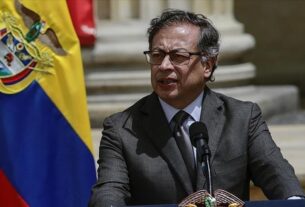A Slow but Stable Trajectory for the Global Economy
The United Nations has published its latest economic forecast, predicting that global economic growth will hold steady at 2.8% in 2025. This report, prepared by the UN Department of Economic and Social Affairs (DESA), outlines the challenges and opportunities that the global economy faces as it continues to recover from recent crises.
While the anticipated growth rate indicates a level of stability compared to previous years, experts warn that ongoing uncertainties, such as geopolitical tensions and climate change, could hinder further economic advancement.
Key Factors Influencing Growth
The UN’s report highlights several elements contributing to the modest growth outlook:
Post-Pandemic Recovery: The lasting impacts of the COVID-19 pandemic continue to affect economies around the globe. Despite substantial recovery efforts, many nations are still dealing with supply chain disruptions, inflationary pressures, and weakened labor markets.
Geopolitical Tensions: Conflicts in Eastern Europe and rising trade disputes have introduced uncertainties for global trade and investment. These geopolitical risks have strained international relations and impeded economic stability in the regions involved.
Climate Change: The growing frequency of natural disasters and extreme weather events presents a significant threat to economic productivity. Developing countries, in particular, are hit hardest, facing challenges in recovering from such shocks due to limited resources.
Rising Interest Rates: Central banks across the globe have increased interest rates to tackle inflation. While this has helped stabilize price levels, it has also raised borrowing costs for businesses and governments, which may slow down economic activity.
Regional Disparities in Growth
The report points out notable differences in economic performance across various regions:
Asia: Emerging markets in Asia are set to continue being major contributors to global growth, with countries like India and China at the forefront. Strong domestic demand and advancements in technology are expected to drive their economies forward.
Europe: Economic growth in Europe is likely to be slower, influenced by the ongoing effects of the war in Ukraine and concerns over energy security. Africa: Several African countries are forecasted to experience moderate growth, spurred by increased investments in infrastructure and renewable energy. However, issues such as political instability and limited access to capital may impede progress.
The Americas: The United States is projected to see stable yet modest growth, while Latin American economies are facing mixed outcomes due to political and economic uncertainties. A Call for Sustainable Development
The UN report stresses the need to prioritize sustainable development to ensure long-term economic resilience. Policymakers are encouraged to concentrate on green investments, digital transformation, and inclusive growth strategies to tackle inequalities and environmental issues.
“Global growth of 2.8% is not a guarantee of progress if it is not distributed equitably or sustainable in the long term,” stated Maria Fernandes, a senior economist at DESA. “We need to rethink our economic models to ensure that growth benefits all segments of society.”
Recommendations for Policymakers
The report outlines several key recommendations to tackle current challenges and promote sustainable growth:
Enhancing International Cooperation: It is essential for governments to collaborate in resolving trade disputes, addressing global conflicts, and reinforcing multilateral institutions. Investing in Renewable Energy: Shifting towards renewable energy sources is crucial for lowering carbon emissions and lessening the economic effects of climate change.
Promoting Digital Inclusion: Increasing access to digital technology can open up new avenues for education, employment, and innovation, especially in underserved areas.
Strengthening Social Safety Nets: Improving social protection systems can provide support for vulnerable populations during economic downturns. Looking Ahead Although the forecast for 2025 suggests steady progress, it also underscores the pressing need for collective action to tackle the underlying causes of global economic instability. As the world confronts interconnected challenges, from climate change to geopolitical tensions, collaboration and innovation will be essential for achieving sustainable and inclusive growth.
The UN’s projection acts as both a reassurance and a reminder: while the global economy is on a stable trajectory, significant efforts are still required to ensure that growth leads to tangible benefits for both people and the planet.




